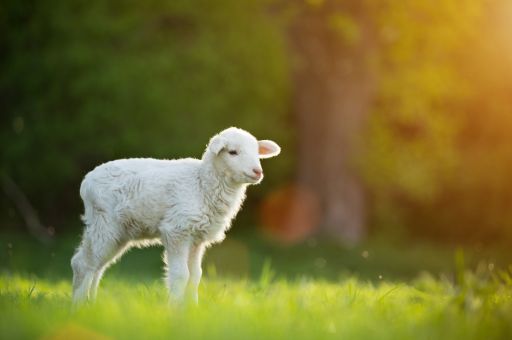Councillor Joan Simonet and Director General Fernando Fernández have called for ‘responsibility and cooperation’ from all stakeholders and the sector to control transmission, as vaccines will not be available until the end of the year.
The Ministry of Agriculture, Fisheries and Natural Environment has informed today, at a press conference, that it has declared the island of Mallorca an area affected by bluetongue, specifically, by a new variant of serotype 8, much more aggressive and with a higher mortality rate than serotype 4, which was responsible for the bluetongue epidemic declared in the Balearic Islands between 2021 and 2023. This serotype 8 was detected last year in France and had already reached Spain, in communities such as Catalonia and Aragon.
The councillor Joan Simonet and the director general of Agriculture, Livestock and Rural Development, Fernando Fernández, have called for ‘responsibility and cooperation’ from all stakeholders and the sector to control transmission, as ‘there are no vaccines available at the moment, and it will not be possible to start immunising livestock until the end of the year,’ said Fernando Fernández.
TDB keeps you informed. Follow us on Facebook, Twitter and Instagram
Agriculture declares Mallorca an area affected by bluetongue
In this regard, Fernandez said that ‘the Directorate General of Agriculture, Livestock and Rural Development began work on Monday 26 August, when the first suspected cases were known. The control measures for bluetongue are laid down in a European regulation and a ministerial order, and a very strict protocol is followed which must be complied with until the disease is officially declared. The bluetongue crisis committee has already been set up and we are coordinating with the Ministry of Agriculture, Fisheries and Food, which has given us its full support.
Councillor Simonet, for his part, has conveyed a message of security to the public and added that ‘this health alert has no impact on public health’. It should be remembered that bluetongue is a viral disease transmitted by mosquitoes of the Culicoides genus that affects ruminants of different species.
According to the data available to the Regional Ministry of Agriculture, Fisheries and Natural Environment, there are a total of five sheep farms where the disease has been confirmed, all in the areas of Deià and Fornalutx, with 22 dead animals. In addition, there are three farms in the same area with suspected cases, pending confirmation. ‘We are aware that many more cases will be confirmed because this new variant is transmitted quickly,’ said Fernández, who explained that this serotype 8 “is different to the one that occurred between 2021 and 2023, which caused 276 outbreaks in the Balearic Islands”. ‘We followed in detail how this new variant was affecting livestock, which in three months has spread very quickly through Catalonia. Our concern was that it would reach the Balearic Islands, which has finally happened, most likely due to the winds caused by the DANA that entered from the French and Catalan Mediterranean, coinciding with the incubation period of ten days’.
The first suspected cases were reported on Monday 26 August. Blood was collected from all the affected farms, and on Friday 30 August the positives were confirmed. ‘With all the information, we initiated the procedure and the protocol of action set by both the European Union and the Ministry, and the confirmed outbreaks have been registered in the Veterinary Health Alert System (RASVE),’ explained the director general. ‘We have acted very diligently,’ added Fernández.
The Directorate General has already held the first coordination meetings with all the organisations and institutions responsible for this matter.
Action protocol
Since the vaccine for this serotype is not available, the Government has contacted the two pharmaceutical companies that manufacture it to order the necessary doses. Therefore, ‘to control the spread of this disease it is extremely important that farmers carry out the preventive measures of disinfection and disinsectisation of animals and livestock farms, as well as controlling the movement of live cattle between farms, which will be restricted, and cannot be exported abroad to areas free of the virus without a negative PCR test,’ said Fernandez.
